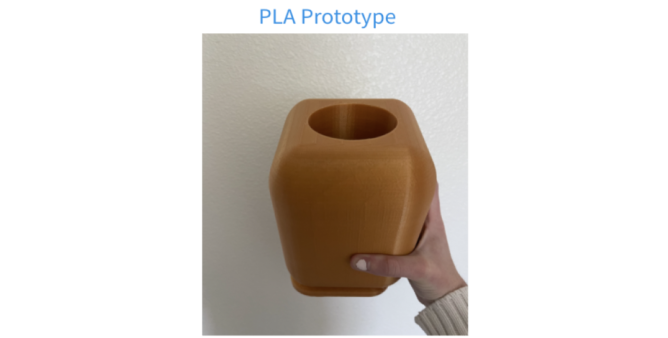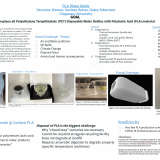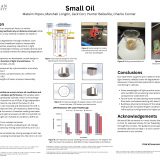
Polylactic Acid (PLA) Replacement to Polyethylene Terephthalate (PET) Water Bottles Veronica Warner, Haley Robertson, Gurleen Buttar
May 11, 2021
There are many environmental consequences such as pollution and climate change exacerbated by Polyethylene Terephthalate (PET), also known as plastic. PET water bottles, specifically, are a significant source of pollution on the planet. Our Grand Challenge Initiative aims to lessen the environmental consequences caused by plastic bottles by finding an alternative. Polylactic acid (PLA), a bioplastic, shares similar characteristics to PET, making it a great potential substitute. In the past semesters, the attributes of Polylactic Acid were tested in two home experiments focusing on how PLA reacts to varying pH levels and different environmental conditions. Even more, a PLA water bottle prototype using a 3D modeling program, Tinkercad, was created and then brought to life using the Makerspace 3D printers. The results of the experiments were that PLA could withstand a broad spectrum of pH levels and environmental conditions. This project is very significant because it introduces replacing all PET water bottles with Polylactic acid, helping to protect the environment and promoting sustainability.
Polylactic Acid (PLA) Replacement to Polyethylene Terephthalate (PET) Water Bottles Poster


